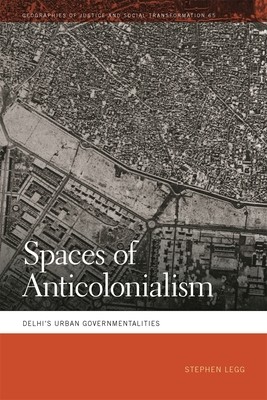
- We will send in 10–14 business days.
- Author: Stephen Legg
- Publisher: University of Georgia Press
- ISBN-10: 0820367850
- ISBN-13: 9780820367859
- Format: 15.2 x 22.9 x 1.8 cm, minkšti viršeliai
- Language: English
- SAVE -10% with code: EXTRA
Reviews
Description
Spaces of Anticolonialism: Delhi's Urban Governmentalities provides a spatial analysis of the anticolonial governmentalities that emerged in the colonial capital of British India. Reading across imperial and nationalist archives, newspapers, memoirs, oral histories, and interviews it exposes the subaltern geographies and struggles which have traditionally been overshadowed by the presence of national leaders in Delhi. It reads the new capital and the old city as one interconnected political landscape and tracks the efforts of the Indian National Congress to mobilise and marshal support for the mass movements of Civil Disobedience (1930-34), Quit India (1942-43), and beyond. This bottom-up analysis, focused on the streets, bazars, neighbourhoods, homes, and undergrounds of the two cities, emphasises the significance of the articulation of physical and political space; it highlights the pioneering role of women in crafting these spaces; and it exposes the micro-techniques that Congress used to encourage Gandhi's nonviolence. Michel Foucault's final lectures on parrhesia (courageous speech and actions) are used to analyse these spaces of anticolonialism as coherent governmentalities which were themselves rejected by those who turned to violence in the years before independence in 1947. This volume provides an innovative study of anticolonial geography and a restive history of the capital of contemporary India's 1.4 billion people.EXTRA 10 % discount with code: EXTRA
The promotion ends in 23d.09:09:14
The discount code is valid when purchasing from 10 €. Discounts do not stack.
- Author: Stephen Legg
- Publisher: University of Georgia Press
- ISBN-10: 0820367850
- ISBN-13: 9780820367859
- Format: 15.2 x 22.9 x 1.8 cm, minkšti viršeliai
- Language: English English


Reviews